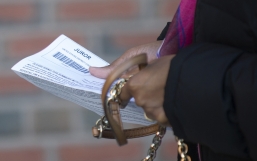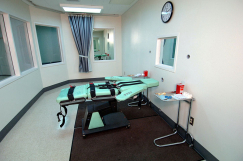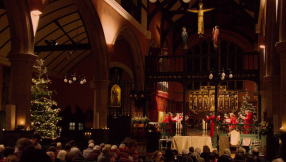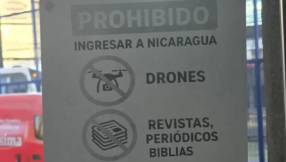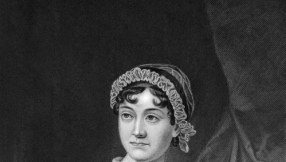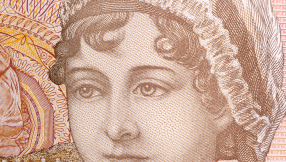Catholic bishops in Massachusetts yesterday reaffirmed their opposition to the death penalty, as prosecutors made their closing arguments in the case against accused Boston Marathon bomber Dzhokhar Tsarnaev.
Tsarnaev, 21, could be sentenced to death if a jury finds him guilty of carrying out the attack on April 15, 2013, and fatally shooting a police officer three days later as he and his brother, 26-year-old Tamerlan Tsarnaev, tried to flee the city.
In a statement released on Monday afternoon, four senior Church leaders, including the Archbishop of Boston, Cardinal Seán Patrick O'Malley, said that "society can do better than the death penalty".
Bishop Edgar M. da Cunha of Fall River, Bishop Mitchell T. Rozanski of Springfield, and Bishop Robert J. McManus of Worcester were co-signatories.
"The Church has taught that the cases in which the execution of the offender is an absolute necessity are 'rare, if not practically nonexistent'," the statement said.
"The Church's teaching is further developing in recognition of the inherent dignity of all life as a gift from God. As Pope Francis has recently stated, '[The death penalty] is an offense against the inviolability of life and the dignity of the human person.'"
The bishops added that Tsarnaev, who is facing 30 federal charges, will not be a threat to society in prison.
"Because of this, we, the Catholic Bishops of the Commonwealth of Massachusetts, believe that society can do better than the death penalty. As the Bishops of the United States said in their 2005 statement A Culture of Life and the Penalty of Death, 'no matter how heinous the crime, if society can protect itself without ending a human life, it should do so,'" the statement concluded.
"We believe these words remain true today in the face of this most terrible crime."
Tsarnaev followed his older brother's lead in carrying out the 2013 bombing that killed three people, rather than acting on his own motivation, one of his attorneys argued on Monday.
Following the prosecution's closing argument, that the ethnic Chechen defendant was an extremist who had "wanted to punish America" with the bombing attack, Tsarnaev's lawyers argued that he had been in thrall to his older brother.
Defence attorney Judith Clarke, who opened the trial last month by admitting that her client had committed all the crimes of which he is accused, repeated that assertion on Monday.
"There is no excuse. No one is trying to make one. Planting bombs at the Boston Marathon one year and 51 weeks ago was a senseless act," Clarke said.
But in a counterpoint to the blunt "it was him" admission of her opening statement, Clarke told the jury that Tamerlan, who died four days after the bombing following a gunfight with police, had planned the attack and built the bombs.
"Tamerlan did that," she said. "We need to understand who was leading and who was following."
By shifting some of the blame to the older brother, Tsarnaev's lawyers are trying to persuade the jury, if they find the defendant guilty, to sentence him to life in prison without the possibility of parole rather than death.
The jury on Monday also viewed video of Tsarnaev standing with a backpack in the crowd at the marathon's finish line minutes before the blasts that killed restaurant manager Krystle Campbell, 29, Chinese exchange student Lingzi Lu, 23, and eight-year-old Martin Richard. Tsarnaev is also accused of the fatal shooting of Massachusetts of Institute of Technology police officer Sean Collier, 26.
'WANTED TO PUNISH AMERICA'
Prosecutors argued that the younger Tsarnaev shared his brother's violent ideology.
"The defendant thought that his values were more important than the people around him. He wanted to awake the mujahedeen, the holy warriors," Assistant US Attorney Aloke Chakravarty said. "He wanted to terrorize this country. He wanted to punish America for what it was doing to his people."
Chakravarty noted that evidence showed that Tsarnaev, who moved to the United States from Russia a decade before the attack, had copies of al Qaeda's "Inspire" magazine on his computers.
"These were political choices," he said of Tsarnaev's actions. "He was making a statement, 'an eye for an eye'."
Hours after the gunfight with police, which ended when Dzhokhar sped off in a car, running his brother over in the process, the defendant hid in a boat parked in a backyard. While there, he wrote a note suggesting the attack was an act of retribution for US military campaigns in Muslim-dominated countries.
Monday's closing statements could be a preview of the arguments each side plans to make during the next phase of the trial, when the same jury will hear a fresh round of witness testimony before determining whether to sentence Tsarnaev to life in prison without possibility of parole, or to death.
Richard's parents, William and Denise; dancer Heather Abbott, who lost both legs in the blast, and former Boston Police Commissioner Ed Davis were among the people who packed the courtroom for closing arguments.
The defendant sat quietly in court on Monday, dressed in a white shirt, dark jacket and no tie. He did not speak.
The surveillance video viewed by the jury on Monday shows a bomb, which the defendant is charged with leaving in front of the Forum restaurant near the finish line, going off with a blinding flash, killing Richard and Lu. The jury also saw video taken by a man injured in the blast.
The graphic video captures the chaos of the immediate aftermath, with one responder yelling that he was worried about the possibility of an additional blast and another voice screaming, "We're on fire here. We're on fire."
Additional reporting by Reuters










